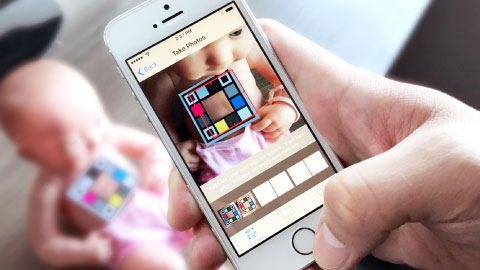Your Google phone could one day diagnose heart disease and more
Google deepens focus on health with purchase of tech startup

Sign up for breaking news, reviews, opinion, top tech deals, and more.
You are now subscribed
Your newsletter sign-up was successful
Google looks to be deepening its focus on health tech with the acquisition of a startup that specializes in health-monitoring apps for smartphones.
Seattle-based startup Senosis was founded by Shwetak Patel, a professor of computer science and electrical engineering at the University of Washington. The company makes apps that use the sensors in your phone for health monitoring.
Among those is BiliCam, an app that can be used to detect jaundice in newborns. The disease is typically known for its effect on the color of a baby’s skin, turning it yellow.
This app uses a combination of a smartphone’s camera and flash to measure the amount of bilirubin (the yellow compound that causes jaundice) in the blood by examining wavelengths of light absorbed by the skin.
Another Senosis app that uses the smartphone’s camera is HemaApp, which measures the levels of hemoglobin (the protein responsible for carrying oxygen) in the blood. An accurate reading of hemoglobin measurement can help to identify a wide range of health conditions including anemia, malnutrition and heart disease.
Thinking deeply about health
The camera isn’t the only part of the smartphone that Senosis utilizes. It also has an app called SpiroSmart that uses the phone’s microphone to measure the strength of a user’s breath. If accurate, this app could be used to identify and track conditions such as asthma, cystic fibrosis and heart disease.
The acquisition was first reported by GeekWire, citing “sources familiar with the deal”. Neither Google nor Patel have commented on the deal at time of writing.
Sign up for breaking news, reviews, opinion, top tech deals, and more.
The acquisition is the latest in Google’s move into the world of digital healthcare. It already has Google Fit, its fitness tracking system, and its parent company Alphabet has a few different health tech endeavours, including its health division, Verily, and Calico, a research and development company dedicated to studying how biology affects lifespan.
Additionally, its artificial intelligence project DeepMind includes the DeepMind Health branch, which has created a medical alert app called Streams for the British National Health Service.
- Want to know more about the ways that tech is taking over healthcare? Check out: Will tech make doctors obsolete?
Via The Next Web

Andrew London is a writer at Velocity Partners. Prior to Velocity Partners, he was a staff writer at Future plc.